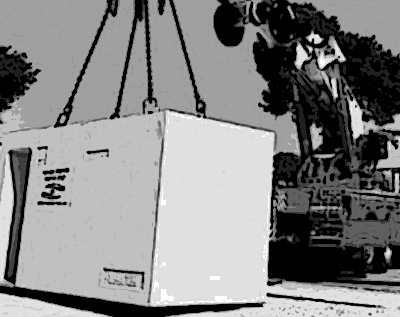< Más Articulos : Reflections on Keren Hayesod (Times of Israel - 27 Aug 2025)
-
-
Reflections on Keren Hayesod (Times of Israel - 27 Aug 2025)

The recent screening in Guatemala of the documentary BIBAS: Murdered for Being Jews brought back vivid memories for me. It reminded me of our own journey in early 2024, when my wife and I traveled to Israel with a dual purpose: to visit our daughter Hannah, then studying at Reichman University, and to lend a hand to communities shattered by the October 7 Hamas invasion.
Our path took us south, to the edge of Gaza, guided by Roi Ermel of Keren Hayesod, the very organization that sponsored the documentary. As former Presidents of the Jewish Community of Guatemala, both of us knew of Keren Hayesod’s work in strengthening Israel. But this time, standing on the very ground scarred by violence, we witnessed its impact with our own eyes.
We met families in towns where homes had been reduced to rubble and lives torn apart. We listened to survivors who spoke of horror, but also of resilience. We joined small acts of kindness, like preparing barbecues for young IDF soldiers returning from the front, that reminded us how even the simplest gestures can carry immense weight in moments of despair.
In Ofakim, a city marked by the infamous “Battle of Ofakim” where 47 residents were killed, we saw Keren Hayesod at work. There, classrooms were being rebuilt, children received mentoring and emotional support, and families were offered trauma counseling. Hope was being pieced together one program at a time.
Kibbutz Kissufim told a story of both grief and resilience. Twenty-two residents and soldiers were murdered, and four others abducted. Yet the ties between Keren Hayesod and Kissufim reach back generations, beginning with the kibbutz’s founding in 1951. Today, that enduring bond is expressed through solidarity missions, visits from diaspora communities, and the Communities2Gether initiative, which channels global support into helping families rebuild their lives with strength and dignity. Our own visit was made even more meaningful by the presence of residents David and Denise Heiblum, who only weeks earlier had traveled to Guatemala as part of a WZO mission.
Perhaps the most harrowing stop was Kibbutz Nahal Oz and its nearby military base. Here, militants killed dozens of civilians, destroyed homes, and massacred 53 soldiers, including unarmed female observers. Survivors endured hours of terror before rescue arrived. Entire neighborhoods had to be evacuated. And yet, amid this devastation, KH has stepped forward with emergency aid, trauma counseling, and long-term development efforts to help the community rise again.
Not all of what we saw was about tragedy. At an Amigour housing complex, one of KH’s flagship social projects, we experienced the quiet but profound impact of providing dignity to Israel’s most vulnerable. Holocaust survivors, elderly immigrants, and people without families live there in safety and community, with cultural and social activities that banish loneliness. It was a reminder that building Israel is not only about responding to crises, but also about ensuring that no one is left behind.
As we flew back home, we carried with us a renewed conviction. The contributions we make through Keren Hayesod are not abstract, they are meals shared, homes rebuilt, children comforted, and futures protected. Supporting Israel through KH is one of the most meaningful ways we, as Jews in the diaspora, can ensure the country’s strength and the wellbeing of its people. Every donation is a seed of resilience, a brick in rebuilding, and a promise of hope for tomorrow.
https://blogs.timesofisrael.com/reflections-on-keren-hayesod/
( Por: Yehudi Sabbagh , 27/08/2025 )
